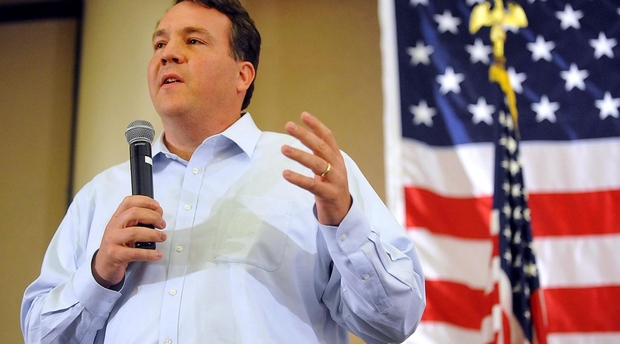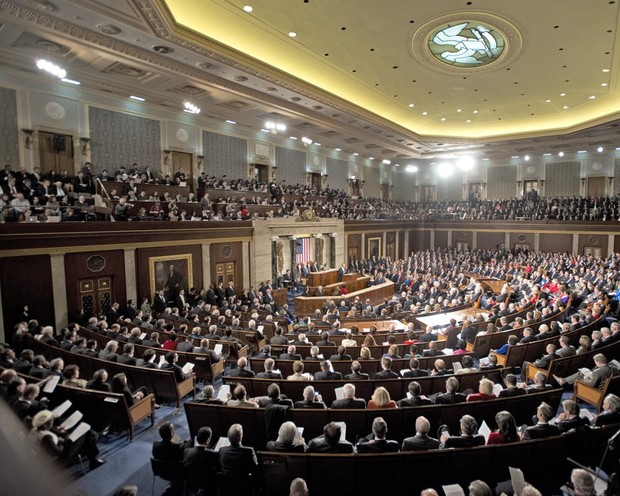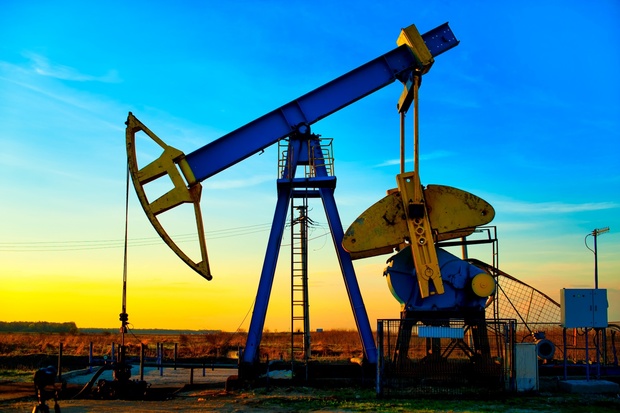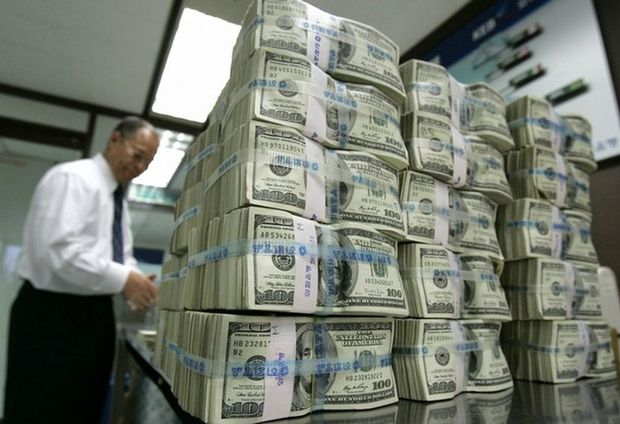In Iranian scenario: whether Trump will lead Russian to economic blockade
‘‘It is a war’’: Americans are about to impose Russia new sanctions because of the situation in Syria
Complication of the relationship between Russia and the USA after the events overnight into 7 April when the USA attacked the airfield of Syrian President Bashar Assad's forces led to a logical result – American congressmen and U.S. President Donald Trump are seriously thinking of imposition of new sanctions due to the situation in Syria. Old sanctions look like child's game in comparison with new ones. The new sanctions severely affect the basic staples of the Russian and Tatarstan economies – oil and gas industries and oil processing. In fact, as economic reviewer of Realnoe Vremya online newspaper Albert Bikbov thinks, we can be cornered into an economic blockade that is similar to that of Iran in 1996.
Indefatigable Russophobe McCain's baby
On Sunday, United States Ambassador to the United Nations Nikki Haley claimed live on CNN that U.S. President Donald Trump was considering the possibility to impose new sanctions against Russia due to the situation in Syria.
We are talking about ''Counteracting Russian Hostilities Act of 2017'' assigned to the Congress. Alexander X. Mooney from Western Virginia is the author. The bill was added to the database of the Congress on 28 March 2017. Actually, it is a changed project of the economic sanctions against Russia offered by Republican Senators John McCain and Lindsey Graham. The project of the document was introduced to the Congress on behalf of Democrat Ben Cardin, nine Congress members were co-authors.
The very bill is a detailed and very concrete programme of the U.S. foreign and internal policy where Russia will take Iran's place. The bill's construction in itself resembles final versions of sanctions of the USA of the 1996s against Iran (ILA and ISLA) – it is, in fact, a gradual transition from sectoral sanctions to general economic ones, though unlike the case of ILA and ISLA, it doesn't presuppose a frontal ban on entire foreign trade.

In comparison with this bill, all previous sanctions against Russian resemble child's game. And if the bill is approved even in its similar version, the fall in the ruble like the fall in late 2014 will be simply inevitable.
The authors of the document try completely changing the sanction pressure mechanism on Russia calling making sanctions a bill the most important aspect. It should be reminded that the current sanctions were imposed in accordance with the U.S. president's executive orders against Russia, its enterprises, organisations and citizens. If sanctions become a law in accordance with the new bill, cancellations of orders by the president will change nothing. So if Trump even wants to lift the sanctions, he won't be able to do it after approval of corresponding laws. Moreover, senators can get a possibility to increase the circle of sanctioned people and organisations.
A bill in the Congress is adopted the following way: the bill reaches the House of Representatives, it approves it by simple majority. The same procedure takes place in the Senate. Almost by simple majority. Then the bill lies on the president's table for signing during 10 days. If the president doesn't approve it, he can apply his veto. If the president used the veto, the bill returns to the House of Representatives. When the bill gets a necessary number of votes, it goes to the Senate where the procedure is repeated. If it happens, the bill obtains the status of federal law without the president's signature. As you can see, a party will live freely if the House of Representatives, Senate and president are from one party.
Republicans have achieved two best results for the first time since 1928: they were the majority in the Senate – the upper chamber of the United States Congress – on national federal election day on 9 November 2016. According to The Washington Post's data, they were 51 of 100, Democrats accounted for 47. Earlier the Republican Party had controlled the lower chamber of the United States Congress — the House of Representatives. Republicans got 224 seats in the house, the majority needs 218 seats.

As you see, Republicans are quite able to pass the sanction bill through both Congress houses without Trump's approval. Let's us remind you the story of Magnitsky List's approval. The Senate and House of Representatives voted for its imposition with a majority of votes in 2012. Barack Obama was against it hoping for an effective cooperation with Russia but, in the end, he signed the bill.
How to corner Russia
The bill is aimed at creation of single limits for economic and personal sanctions against Russia for three reasons:
Reason No.1: like hostile actions of the Russian Federation in cyberspace (the formal reason for creation of the act appeared after Germany's report about the external influence of Russia on the elections in the USA). Another act on sanctions in response to cyber intrusions by the Government of the Russian Federation as from 2017 is to be adopted. We talking about sectoral sanctions against structures and people in Russia who are implicated in the ''hostile cyber activity'' in the USA like sectoral sanctions of the USA against Russia in the Military and Industrial Complex. We are talking about identification of such structures and people during 180 days after the date of the enactment of this Act, asset blocking, denial of a visa, including more than one-year-old loans of over $10 million, asset purchase deals by the USA. Here are the structures and people named in the bill: Main Intelligence Directorate, Federal Security Service, The Special Technology Centre, Zorsecurity (also known as Esage Lab), autonomous non-commercial organization known as the Professional Association of Designers of Data Processing Systems, Igor Valentinovich Korobov, Sergey Aleksandrovich Gizunov, Igor Olegovich Kostyukov, Vladimir Stepanovich Alekseyev. As it was mentioned above, the list of these people is not final, senators can expand it further.
Reason No. 2: like Russian aggressive actions towards neighbouring countries (annexation of Crimea, Ukraine, South Ossetia, Abkhazia). Here is the direct prohibition on recognition of Crimea as territory of the Russian Federation by the USA and Abkhazia and South Ossetia as independent states. No United States flagged ship or aircraft operated by American air carriers may take any action as if Crimea had been part of Russia and Abkhazia had not been Georgia. Obviously, it is a ban on recognition of the sovereignty of the Russian Federation over Crimea or its airspace or territorial waters.
But the most serious sanction for Russia is the imposition of extremely strict sanctions against the Russian energy industry. Sanctions are imposed against any investor who makes an investment of $20 million and more in any activity that directly and significantly contributes to the enhancement of the ability of the Russian Federation to develop petroleum or natural gas resources. Investments of $5 million are also forbidden if their total value during 12 months exceeds $20 million. Here the Russian oil industry will face a deep fall – Russian oil companies still actively buy equipment in the West for hydraulic fracturing on traditional fields. Moreover, many works are done by western developers on a turnkey basis. But the situation is not too bad – supplies of western drilling fluids, pipes and isolation valve can be substituted within several years.

The worst thing is that sanctions can be imposed against the companies that leased or provided goods, services, technology, information or support that could directly and significantly facilitate the maintenance or expansion of the production of petroleum products or natural gas in the Russian Federation, including any direct and significant assistance with respect to the construction, modernisation or repair of petroleum refineries and natural gas infrastructure if the value of one goods excels $1 million or during a 12-month period with an aggregate market value of $5 million. It is close to a complete ban on equipment supply. Particularly the ban refers to equipment for modernisation of petroleum refineries, which is mainly purchased in Europe, the USA and Japan. Russian oil refinery has not been imposed international sanctions yet. It means a ban on further development for Tatarstan with its big plans for oil extraction rate increase (TAIF-NK, TANECO). Here it is almost unreal to substitute oil processing equipment, IT systems and communications, technologies – it will take many-many years. In addition, big part of the sector is already using Western technologies and equipment that needs to be repaired and maintained in a working state.
Sanctions will be imposed for making an investment of more than $1 million (or more than $5 million during 12 months) in Russian export pipelines or goods, services, technology, information or support for construction or maintenance of energy pipes in Russia. It directly threatens Gazprom's pipe projects.
A long list of sanctions is prepared for the companies and people who will disobey. They may not receive approval of the American Export-Import Bank and access to state procurement. They won't be able to obtain permission to deliver goods or services from the USA including loans of American banks. If sanctions are imposed against a financial institution, it won't be able to work with American debt instruments, exchange in foreign currency, etc. The sanctioned company can face prohibition on transactions in dollars, ban to have deals in the USA. The American Government may also prohibit to invest money in debt instruments of such a company or its shares. The same measures including denial of a visa can be taken against the management of sanctioned companies.
In separate articles (from 2010-201 of the Act), the U.S. president may impose 5 or more sanctions out of 12 (from prohibiting U.S. banks from granting loans to complete prohibiting any financial transactions) against residents of the USA participating in privatisation of the state debt of Russia or issuance of its sovereign debt. In fact, taking these measures will mean prohibiting American investors from purchasing Russian state assets and euro bonds. So such a loved and used by foreign financiers Carry Trade in Russia will gradually disappear. And the Russian Ministry of Finance will face difficulties – it will be almost unreal to borrow abroad.

Reason No. 3: like the necessity to systematically defend democracy and fight against corruption in Eastern Europe. Its sanctions will be personified by ''Europe and Eurasia Democracy and Anti-Corruption Initiative Act of 2017;;. Not later than 90 days after the date of the enactment of this Act, and annually thereafter, the Secretary of State may submit to the appropriate congressional committees a report describing in detail media outlets propagate anti-Western falsehoods and disinformation controlled and funded by the Government of the Russian Federation. Europe and Eurasia Democracy and Anti-Corruption Fund is to be created through nongovernmental or international organisations for $100 million from the U.S. budget by 2018. It is to propagandise democratic ideas, information freedom in Russia and neighbouring countries and be against corruption. The Treasury of the United States is to establish a subdivision within the fight against financial violations that will trace illegal financial transactions of structures of Russia in the U.S. banking system, help analogous structures in Europe with the same power. This title may terminate 10 years after it, and it can be prolonged. Even a person who will come after Trump won't be able to change them.
Everything is very and very serious. The ruble will inevitably fall if the bill is adopted. The oil and gas industry, which is very important for Russia, is almost cornered. Probably the bill will change. But we don't believe in this good way after the latest events. What is more, western financiers started to prepare for the worst: during the first April week, foreign hedge funds increase their rates for the devaluation of the Russian currency by almost threefold. 9 big funds bet 10,136 contracts at 25 billion rubles on the ruble devaluation. A similar level was in October 2014 on the eve of the devaluation of oil prices and the further ruble weakness.
We hope sound mind will win, and Russia won't be ''cornered'' when even the weakest is able to snarl up there…